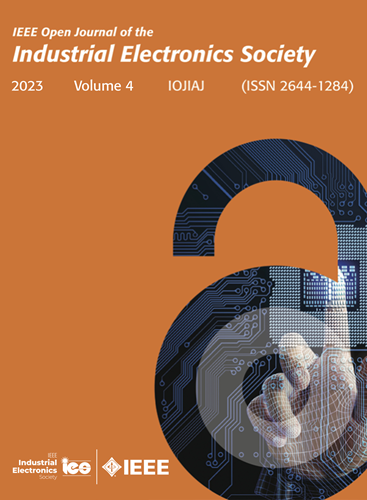Fast Nonlinear Model Predictive Control for the Energy Management of Hybrid Energy Storage System in Wave Energy Converters
IF 7.2
1区 工程技术
Q1 AUTOMATION & CONTROL SYSTEMS
引用次数: 0
Abstract
The integration of a hybrid energy storage system (HESS) into a wave energy converter (WEC) helps achieve smoother power output, provided that an effective energy management strategy (EMS) is employed. This article proposes a fast nonlinear model predictive control (NMPC)-based EMS that balances multiple objectives while maintaining an acceptable computational burden. First, a multiobjective cost function is formulated to optimize system efficiency, battery life, and supercapacitor voltage regulation. The numerical solution to the constrained optimal control problem (OCP) is confined to an adaptive admissible control set. To efficiently solve the OCP, a fast forward dynamic programming (FDP) algorithm is designed. The curse of dimensionality in dynamic programming is mitigated using a MB strategy and state-space approximation. Furthermore, a “smart-select” technique, employing flexible resolution and early termination, is introduced to prune unnecessary search paths. Finally, comparative case studies are conducted under various load conditions, confirming the superior performance of the proposed EMS in reducing energy loss, battery ampere-hour throughput, and battery rms current. Moreover, the significantly improved computational efficiency on an embedded controller further demonstrates the effectiveness of the fast FDP algorithm.波浪能变流器混合储能系统能量管理的快速非线性模型预测控制
如果采用有效的能量管理策略(EMS),将混合储能系统(HESS)集成到波能转换器(WEC)中有助于实现更平稳的功率输出。本文提出了一种基于快速非线性模型预测控制(NMPC)的EMS,在保持可接受的计算负担的同时平衡多个目标。首先,制定了一个多目标成本函数来优化系统效率、电池寿命和超级电容器电压调节。约束最优控制问题(OCP)的数值解被限制在一个自适应允许控制集上。为了有效地求解OCP,设计了一种快速正演动态规划算法。采用MB策略和状态空间近似方法缓解了动态规划中的维数问题。此外,引入了“智能选择”技术,采用灵活的分辨率和早期终止,以修剪不必要的搜索路径。最后,在各种负载条件下进行了比较案例研究,证实了所提出的EMS在降低能量损失、电池安培小时吞吐量和电池均势电流方面的优越性能。此外,在嵌入式控制器上显著提高的计算效率进一步证明了快速FDP算法的有效性。
本文章由计算机程序翻译,如有差异,请以英文原文为准。
求助全文
约1分钟内获得全文
求助全文
来源期刊

IEEE Transactions on Industrial Electronics
工程技术-工程:电子与电气
CiteScore
16.80
自引率
9.10%
发文量
1396
审稿时长
6.3 months
期刊介绍:
Journal Name: IEEE Transactions on Industrial Electronics
Publication Frequency: Monthly
Scope:
The scope of IEEE Transactions on Industrial Electronics encompasses the following areas:
Applications of electronics, controls, and communications in industrial and manufacturing systems and processes.
Power electronics and drive control techniques.
System control and signal processing.
Fault detection and diagnosis.
Power systems.
Instrumentation, measurement, and testing.
Modeling and simulation.
Motion control.
Robotics.
Sensors and actuators.
Implementation of neural networks, fuzzy logic, and artificial intelligence in industrial systems.
Factory automation.
Communication and computer networks.
 求助内容:
求助内容: 应助结果提醒方式:
应助结果提醒方式:


